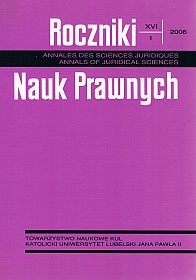The Transition of the Professed of Perpetual Vows from One’s Own to Another Religious Institute. Canonical Procedure
Abstract
The ecclesiastical legislator admits the possibility of the transit of a member of a religious institute to another and specifies in a general way the procedure of this one. The perpetually professed religious can ask the permission of the supreme moderators of the institutes a quo and ad quem with their respective councils. It is not necessary in this case the intervention of the Holy See or other subjects of external authority. When presenting the petition, the religious must state the reasons for his decision. To supreme moderators and also to their councils, it is necessary to evaluate these motives and discern the concrete situation of the religious and the institute. The consent of the councils must be obtained ad validitatem of the permission of the superiors.
The passage to another institute is not the right of the religious. The pardon granted as the response to the request of the religious concerned is a grace; supreme moderators can grant or deny it. The religious is left with the possibility of recourse to higher authority. During and after the test the religious not admitted to perpetual profession in the new institute has the right and obligation to return to his own; likewise, even if he were admitted to perpetual profession in the new institute, he may renounce it and return to his own institute. The institute a quo must receive it. If the religious does not want to return, he should ask for the pardon of secularization.
The legislator does not regulate in detail all the issues related to transit. In the law itself, it would be necessary to specify, for example, the duration and mode of the test or the competences of the person who supervises the passage of the test and issues the judgment on the applicant. When these specific norms do not exist, superiors must decide ad casum.
Copyright (c) 2006 Roczniki Nauk Prawnych

This work is licensed under a Creative Commons Attribution-NonCommercial-NoDerivatives 4.0 International License.


